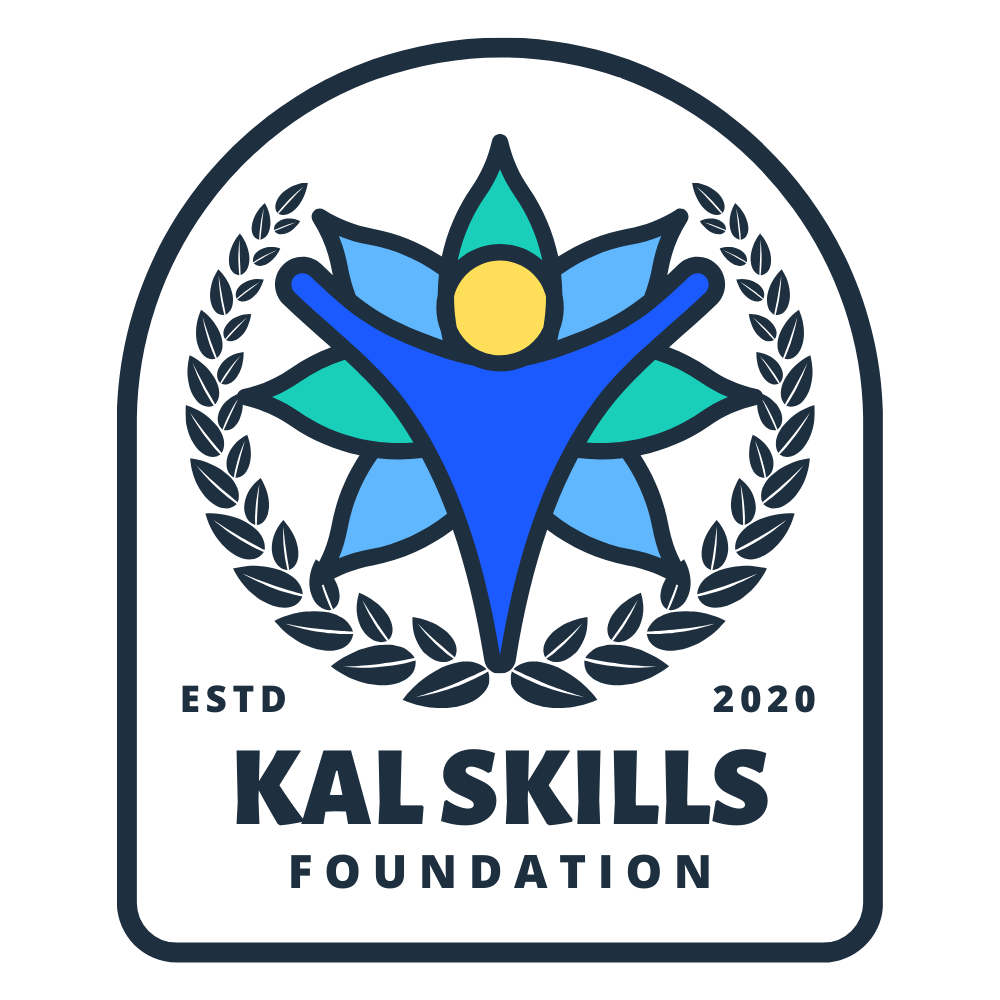In today’s fast-changing job market, can you afford to stand still in your career? The key to success is adapting, learning new skills, and grabbing growth chances. But how do you navigate the complex world of professional growth and make sure your career takes off1?
To move up in your career, you need a smart plan. This plan should focus on improving your skills, growing personally, and understanding today’s work world. This article will be your guide to moving your career forward2.
Key Takeaways
- Develop a tailored professional development plan to achieve your career goals
- Leverage mentorship and networking to expand your industry knowledge and connections
- Continuously upskill and acquire new certifications to stay relevant in your field
- Cultivate leadership capabilities to position yourself for advancement opportunities
- Maintain a healthy work-life balance to prevent burnout and sustain long-term success
Understanding the Fundamentals of Career Growth
Getting to the top in your career needs a deep understanding of key concepts. Career development and career growth are often mixed up, but they’re different. Knowing the difference is key to moving up in your career and personal life.
Difference Between Career Development and Growth
Career development is about getting skills and knowledge for your current job or field3. It might mean getting certifications, going to training, or taking on more at work3. On the other hand, career growth is about moving forward in your career over time. This could mean getting promoted, changing jobs, or growing your skills3.
Key Components of Professional Success
Success in your career is built on several things. These include learning new things, networking, and being able to change with the industry4. Growing your career through promotions or new roles can make you happier and more secure at work4. Also, developing professionally helps you lead better and adapt to changes, which helps the economy grow4.
Building a Strong Career Foundation
Having a strong career base is essential for lasting success. It means setting goals, learning new skills, and being proactive in your career4. Ways to build this foundation include getting a graduate degree or specialized certifications4. Also, taking on tough projects or internships can give you real-world experience and skills4.
Understanding the difference between career development and career growth is important. It helps you plan your career and personal growth better43.
“Continuous learning and skill enhancement are the cornerstones of sustainable professional development and long-term career growth.”
Essential Skills for Modern Professional Development
The business world is always changing, and so are the skills needed to keep up. People must learn a wide range of skills, from technical to soft. These include skill enhancement, leadership training, and management development. They are key for success in today’s workplace.
Good communication is a must for success. Research shows that 93% of how well we communicate comes from body language and voice tone5. Listening well can boost productivity by 20%5. Also, being good with people is crucial, as 85% of job success comes from soft skills5.
With technology changing work, knowing how to use it is essential. By 2020, 77% of jobs will need tech skills5. Being able to adapt and be flexible is also important, as 47% of employers value these skills most5.
Leadership and emotional intelligence are also vital. Studies show that 76% of employees say leadership greatly affects their work environment5. And, 90% of the best workers have high emotional intelligence5.
Keeping skills sharp through training and learning on your own is key. This helps you stay ahead in the job market. Investing in your growth can lead to more success and better career chances.
| Skill | Importance |
|---|---|
| Communication | 93% of communication effectiveness is determined by nonverbal cues5 |
| Active Listening | Can increase productivity by 20%5 |
| Soft Skills | 85% of job success comes from having well-developed soft skills5 |
| Digital Literacy | 77% of jobs will require technology skills by 20205 |
| Adaptability | 47% of employers consider adaptability as the most important skill5 |
| Leadership | 76% of employees rate leadership as the most significant factor in their work environment5 |
| Emotional Intelligence | 90% of top performers have high emotional intelligence5 |
By focusing on these key skills, professionals can improve their skill enhancement, leadership training, and management development. This sets them up for long-term success and career growth.
“Continuous learning and skill enhancement are the keys to staying relevant and competitive in today’s rapidly evolving job market.”
Creating an Effective Career Advancement Plan
Creating a good career plan is key for growing professionally and feeling fulfilled. It starts with setting SMART (Specific, Measurable, Achievable, Relevant, Time-Bound) goals. These goals act as a guide for your career path6.
Setting SMART Career Goals
Start by thinking about your current skills, interests, and dreams. Make SMART goals that match your career goals. This could mean getting a promotion, moving to a new role, or learning new skills7. Your goals should be clear, measurable, and reachable in a set time7.
Developing Timeline Milestones
Turn your SMART goals into steps with deadlines. Set both short and long-term goals to keep moving forward and track your success7. Use workshops, online classes, and professional networks to help you7.
Measuring Progress and Achievements
Check your progress often and celebrate your wins, big or small. Reflect on yourself, ask for feedback, and update your plan as you go7. This way, your plan stays current and matches your changing goals6.
With a solid and adaptable career plan, you can lead your professional growth. This shows your commitment to your job and opens doors for success in your career and life6.
“A well-crafted career development plan can be a powerful tool in driving your professional growth and achieving your long-term goals.” – Jane Doe, Career Coach
The Role of Mentorship in Career Growth
Mentorship is a powerful tool for career growth. It connects aspiring professionals with experienced leaders. This offers valuable guidance and support, speeding up career advancement8.
Mentors give personalized advice and use their connections to open doors. Studies show that mentorship increases job seekers’ chances of success. It provides essential networking and emotional support during the job search8.
Mentors also help develop the skills needed for success. They offer tailored guidance on resume writing, interview techniques, and networking strategies. This helps mentees navigate the job market better8.
Mentorship also fosters confidence and accountability. Mentors help set goals, give feedback, and offer ongoing support. This keeps mentees focused and moving towards their career goals8.
Finding the right mentor takes effort and preparation. Mentees should define their career goals, identify compatible individuals, and explore their networks. They should approach potential mentors naturally over time8.
Ultimately, mentorship programs offer a valuable chance for professional development. They give mentees the guidance, connections, and confidence needed for career advancement8.
| Key Benefits of Mentorship | Impact on Career Growth |
|---|---|
| Personalized career guidance | Accelerated learning and skill development |
| Networking opportunities | Expanded job prospects and industry connections |
| Confidence building | Increased motivation and resilience |
| Accountability and goal setting | Measurable progress and achievement of objectives |
“Mentorship is not just about sharing knowledge; it’s about cultivating the next generation of leaders and empowering them to reach their full potential.”
Leveraging Networking for Professional Success
Networking is key for career growth and professional development. It opens doors to new networking opportunities, helps with career advancement, and supports professional development. By building and keeping industry relationships, sharing work updates, and supporting contacts, professionals can find many resources and chances.
Building Industry Relationships
Starting and growing industry relationships is the base of good networking. Go to industry events and conferences to share ideas, learn, and find new chances9. Doing informational interviews can give insights and networking chances for those looking to grow their career and explore different paths9. Being positive, using good body language, and showing real interest can make networking better9.
Utilizing Professional Social Networks
Online professional networks like LinkedIn are great for growing your network10. With over 700 million users worldwide, LinkedIn is full of chances to network10. Keeping your LinkedIn profile up to date, engaging with posts, and sharing your own content can make you a go-to expert in your field10. Personalizing connection requests and saying thank you to connections can lead to great professional chances10.
Attending Industry Events and Conferences
9 Going to industry events, conferences, and online groups can really help your career by giving you access to resources and chances911. A CareerBuilder survey found that 80% of professionals think networking is key for moving up in their career11. At these events, you can meet peers, learn new trends, and find career advancement chances.
“Effective networking is not just about making sales, but about making real connections and building a helpful network. It lets professionals get industry insights, mentorship, and chances for career growth.” – John Doe, Career Coach
911 LinkedIn and Harvard Business Review found that about 85% of jobs come from networking, and 70% of top positions were gotten through networking911. Using these networking chances can really help your professional development and career growth91011.
Continuous Learning and Skill Enhancement
In today’s fast-changing business world, continuous learning and improving skills are key for career growth. A 2023 edX study found that over 80% of employees see their companies as places for learning after school12.
Learning continuously keeps professionals updated with the latest trends and best practices. It also helps create a culture of innovation and flexibility in companies. Gallup says about 57% of U.S. workers want to improve their skills12. This shows how important it is for companies to offer learning and development chances.
Going to workshops, webinars, and industry events can help grow your knowledge and build professional networks12. Many companies also help pay for their employees’ continuing education. They see the value in having a skilled and adaptable team12.
Learning continuously not only improves individual skills but also helps the whole company. ServiceNow and Pearson say 23.5 million U.S. jobs will need reskilling or upskilling soon12. Companies that focus on professional development can become more efficient, productive, and innovative. This makes them more competitive and strong.
| Continuous Learning Benefits | Impact |
|---|---|
| Increased Job Satisfaction | 77% of employees would stay longer with a company that offers a better learning and development program12. |
| Improved Retention | More than a third of employees would consider leaving their current role for a job with better learning and development perks12. |
| Higher Earning Potential | U.S. workers who participated in an upskilling program earn an average of $8,000 more than colleagues who did not12. |
| Enhanced Competitiveness | External candidates are paid an average of 18% more than internal hires, highlighting the value of continuous learning12. |
By valuing lifelong learning and skill enhancement, companies can help their employees grow professionally. This keeps them relevant in their fields and helps the company succeed12. This commitment to learning makes the workforce more engaged, adaptable, and ready for the future.

“Continuous learning is the minimum requirement for success in any field.” – Brian Tracy, motivational speaker and author13.
Professional Development Through Certifications
Getting professional certifications can change your career for the better. These credentials show you know your stuff and are ready for new challenges14. Programs like the UPCEA PCO Professional Certificate and UPCEA Leader Certificate give you the training and connections you need to move up in online and professional education14.
Industry-Specific Certifications
Industry-specific certifications highlight your deep knowledge in a certain field15. At Cal State Fullerton, you can get certificates in areas like Business, Crime, Legal & Fiduciary Management, and Technology & Engineering15. These programs are quick, lasting from 3 months to 2 years, and are a smart way to boost your skills15.
Management and Leadership Credentials
Leadership and management certifications are key for those aiming for higher roles14. The UPCEA Leader Certificate program is for those already in higher education, offering knowledge and networking to grow your leadership skills14. At CSUSM, the Supervising Employees certificate is an eight-week course for new and future supervisors, teaching them the basics of management16.
Technical Skills Certifications
In today’s fast-changing tech world, technical skills certifications are more important than ever16. For example, CSUSM’s PMP Certification Prep program is a three-month course to get the Project Management Professional (PMP) certification16. These certifications show you’re skilled in specific tools and methods, making you more appealing to employers and helping you grow your career16.
Investing in professional certifications is a smart move for career growth. By getting industry-specific, management, and technical certifications, you can stand out, grow your skills, and open up new career paths141516.,,
“Certifications are a powerful way to validate your skills and demonstrate your commitment to professional development. They can open doors to new opportunities and accelerate your career growth.” – Jane Doe, HR Manager
Building Leadership Capabilities
Developing leadership capabilities is key for career advancement. Improving communication, decision-making, and strategic thinking helps professionals move up. This is important for taking on bigger roles17.
Joining leadership training programs and leading projects or teams boosts growth. These programs enhance emotional intelligence and teach how to motivate others. This is essential for being a good leader17.
Great companies share values like respect, integrity, and courage. Adopting these values in leadership builds a strong reputation. It shows one’s potential for growth17.
The SMART goal-setting method is great for management development. It sets clear, achievable goals. This improves decision-making and shows leadership skills17.
Keeping learning and improving skills is vital for leadership training and career advancement. A culture of learning boosts creativity and problem-solving. Mentorship and coaching offer personalized help for growth18.
Companies that focus on leadership development see better employee engagement and retention. Investing in leadership training leads to success17.

“Effective leadership is not about making speeches or being liked; leadership is defined by results, not attributes.” – Peter Drucker
| Key Benefits of Leadership Training | Organizational Impact |
|---|---|
|
|
Investing in leadership training and management development is smart. It prepares a team for career advancement. This benefits both the individuals and the organization171819.
Work-Life Balance and Career Growth
Keeping a balance between work and personal life is key for lasting career success and happiness. Using good time management strategies boosts productivity. Learning stress management techniques helps avoid burnout and supports long-term success20.
More employers now see the value of work-life balance in keeping the best employees. It’s not just about being happy; it also leads to up to 57% higher retention rates in companies that invest in their workers’ growth21.
Time Management Strategies
- Prioritize tasks and focus on high-impact activities
- Delegate responsibilities and empower team members
- Set clear boundaries between work and personal time
- Utilize productivity tools and techniques to optimize workflows
Stress Management Techniques
- Practice mindfulness and meditation
- Engage in regular exercise and physical activity
- Seek support from family, friends, and professional networks
- Take regular breaks and vacations to recharge
By using effective time management strategies and stress management techniques, professionals can find a balance between work and life. This leads to21 happier employees, better engagement, and higher earnings20.
| Work-Life Balance Strategies | Benefits |
|---|---|
| Prioritizing personal interests and hobbies | Develops soft skills, enhances creativity, and promotes overall well-being |
| Effective time management and task delegation | Reduces pressure, allows team members to showcase skills, and contributes to team success |
| Seeking support from personal and professional networks | Assists in balancing work and personal life, leading to improved mental health and productivity |
“Achieving a healthy work-life balance is not just about time management; it’s about creating a sustainable lifestyle that nurtures both your professional and personal growth.” – Jane Doe, Work-Life Balance Consultant
By adopting work-life balance strategies, professionals can open doors to personal growth and professional development. This leads to lasting career success2120.
Digital Transformation and Career Advancement
The digital transformation is changing how we work and grow in our careers. To keep up, we need to learn new tech and become digitally literate22. By 2025, 85 million jobs might disappear, but 97 million new ones could appear, says the World Economic Forum22.
Embracing digital change can lead to many career opportunities and help us grow professionally23. Jobs in IT and tech are looking for people who know React JS, Angular, and more23. New roles like data scientists and cybersecurity experts are becoming more common, showing the job market’s shift towards tech23.
Digital skills like data analytics and programming are now key for getting a job2322. McKinsey says 375 million workers might need to change jobs or learn new skills by 20302223.
The gig economy is offering more work options, but we need to be good at working virtually and adapting23. The need for cybersecurity experts is growing, showing how important it is to protect data in a digital world23.
“By 2025, 50% of all employees may need reskilling due to automation and economic changes.”22

To succeed in the digital world, we must keep learning and improving our skills22. By embracing digital transformation, we can open up new paths for our careers and achieve long-term success.
Cross-Functional Experience and Job Rotation
In today’s fast-changing work world, cross-functional experience and job rotation are key. They help with career advancement, skill enhancement, and professional development. These methods let employees learn about different parts of the business. This way, they can grow versatile and adapt to new work demands.
Benefits of Role Diversification
Role diversification through cross-functional experience and job rotation brings many benefits. About2450% of Americans want to change careers, with2439% looking for a raise or promotion and2433% wanting to switch industries24. Companies that offer cross-functional training see better agility, employee retention, and resilience. Also, cross-training can spark innovation by bringing new skills and perspectives.
Building Versatile Skill Sets
24Companies with formal cross-functional training programs get better results24. Using talent assessments to find the right employees for cross-training can lead to success24. Coaching and mentoring also improve employee skills by sharing knowledge.
By taking on cross-functional roles, employees can grow their skills and adaptability. This prepares them for career advancement in their company. These strategies help both the individual and the company, making it more agile and resilient. They create a culture of professional development and skill enhancement.
“Diversifying one’s skills and experiences through cross-functional roles can be a game-changer for career growth and professional development.”
Personal Branding for Career Success
In today’s job market, personal branding is key for career growth. Personal branding means creating a unique professional identity. It helps you stand out and attract new opportunities25.
Personal branding affects how people see you and the chances you get. A strong brand can bring you mentors and sponsors. This can help you get promotions and grow your career25. Networking also boosts your visibility, making you more likely to be considered for new roles25.
Social media, like LinkedIn, is great for showing off your brand. Share insights, show your skills, and connect with others. This makes you a leader in your field25. Being seen as an expert can open up more job chances and help you advance26.
Being consistent is crucial for personal branding. Keep your brand the same everywhere, online and in person. This builds trust and credibility25. Changing your brand to reflect new skills or goals can also be smart25.
In conclusion, personal branding is a powerful tool for career growth. A strong brand sets you apart, attracts opportunities, and helps you succeed in your field2627.

| Statistic | Percentage |
|---|---|
| Recruiters who use LinkedIn to find candidates | More than 90%26 |
| Jobs filled through networking | 85%26 |
| Recruiters who consider a candidate’s personal brand in hiring decisions | Hiring managers often report that a candidate’s personal brand plays a role in hiring decisions26 |
| Employers who use social media to screen candidates | 70%27 |
| Likelihood of receiving job opportunities with a complete LinkedIn profile | 40 times more likely27 |
| Employers who believe a strong personal brand is crucial for career advancement in marketing and advertising | 62%27 |
| Hiring managers more likely to choose a candidate with a strong online presence | 82%27 |
| Recruiters who believe a strong personal brand positively influences their hiring decisions | 87%27 |
| Recruiters who check a candidate’s social media profiles to evaluate their personal brand | 72%27 |
| Likelihood of receiving job opportunities with a strong personal brand | 40% more likely27 |
| Likelihood of being promoted and receiving salary increases with a strong personal brand | Individuals who actively build their personal brand are more likely to be promoted and receive salary increases27 |
| Perception of professionals with a strong personal brand | Perceived as more trustworthy and knowledgeable27 |
| Likelihood of receiving job opportunities with a strong personal brand profile | 40 times more likely27 |
| Likelihood of getting noticed and receiving job opportunities with a strong personal brand | 20 times more likely27 |
| Professionals who believe a strong personal brand is key to unlocking new opportunities | 70%27 |
| Hiring managers who conduct online research on job candidates before making a decision | 75%27 |
| Employers more likely to hire candidates with a strong online presence | 80%27 |
| Likelihood of being contacted by recruiters and securing new job opportunities with a strong personal brand | 40 times more likely27 |
| Hiring managers who have rejected a job candidate based on information found online | 70%27 |
Performance Management and Career Growth
Effective performance management is key for career growth. It helps you stay on track with your goals and show your worth to employers28. Regular reviews give you feedback to improve and set new goals28.
Setting Performance Metrics
Starting with clear performance metrics is vital. These should be specific, measurable, achievable, relevant, and timely (SMART) to guide your progress28. Using SMART goals can boost employee productivity by 15%28.
Regular Performance Reviews
Regular reviews are crucial for tracking your progress and getting feedback. They help you see your strengths and areas to improve, and set new goals28. Studies show that feedback boosts employee engagement by 6 times28. Self-evaluation can also increase satisfaction by 10%28.
Aligning performance management with your career goals opens up new opportunities29. Companies that focus on both see a 25% boost in employee engagement28. Mentorship programs can also increase retention by up to 23%29.
“Effective performance management supports career growth by providing the necessary feedback, accountability, and development opportunities to help individuals reach their full potential.”
Career Mobility and Advancement Opportunities
Career mobility is key in today’s fast-changing job world30. It includes moving up in your job, which means more money and better roles30. It also means moving sideways to learn new things and see different parts of your field30. And there’s diagonal mobility, which is a mix of both, leading to bigger challenges and new paths.
When people move in their careers, they and their companies win31. Companies keep their best workers longer, saving money on new hires31. They also work better together, thanks to shared knowledge and skills31. Plus, learning new things keeps careers alive, and companies that help with this attract the best workers31.
To make the most of career moves, keep up with new trends and roles30. Network with others in and outside your company30. And don’t be afraid to try new things to grow your skills30. This way, you stay sharp, adaptable, and open to new chances for growth and creativity30.
FAQ
What is the difference between career development and career growth?
What are the key components of professional success?
What essential skills are required for modern professional development?
How can individuals create an effective career advancement plan?
What is the role of mentorship in career growth?
How can professionals leverage networking for career success?
Why is continuous learning important for career growth?
How can professional certifications contribute to career advancement?
What are the benefits of building leadership capabilities for career advancement?
How can professionals maintain work-life balance for sustainable career growth?
How does digital transformation impact career advancement?
What are the benefits of cross-functional experience and job rotation?
Why is personal branding crucial for career success?
How can effective performance management support career growth?
What is the importance of career mobility for professional growth?
Source Links
- https://www.roberthalf.com/us/en/insights/management-tips/7-ways-to-support-employees-career-advancement – 7 Ways to Support Employee Career Development and Advancement
- https://www.cpshr.us/blog-article/professional-development-and-career-growth-retaining-top-talent-in-the-public-sector/ – Professional Development and Career Growth: Retaining Top Talent in the Public Sector | CPS HR Consulting
- https://www.coursera.org/articles/career-advancement – Career Advancement Guide: Growth Tips to Achieve Your Goals
- https://www.betterup.com/blog/career-development – Career Development: What it is, Why it’s Important, and Planning Tips
- https://www.graygroupintl.com/blog/professional-development – Professional Development: 5 Essential Skills for the Modern Workforce
- https://nectarhr.com/blog/career-development-plan – Blog | How To Build A Career Development Plan Your Team Will Actually Use – Nectar
- https://asana.com/resources/professional-development-plan – Write a Professional Development Plan in 6 Steps [2024] • Asana
- https://www.atriumstaff.com/role-of-mentorship/ – The Role of Mentorship in Professional Growth
- https://www.airswift.com/blog/professional-networking – How to build a professional network for career development
- https://www.linkedin.com/pulse/power-networking-leveraging-linkedin-htkff – The Power of Networking: Leveraging LinkedIn for Professional Growth
- https://eatyourcareer.com/2024/07/how-to-leverage-your-professional-network/ – How to Leverage Your Professional Network – Eat Your Career
- https://builtin.com/articles/continuous-learning – What Is Continuous Learning and Why Is It Important? | Built In
- https://trainingmag.com/the-power-of-continuous-learning-strategies-for-professional-development-in-the-workplace/ – The Power of Continuous Learning: Strategies for Professional Development in the Workplace
- https://upcea.edu/professional-development-certificates/ – Professional Development Certificates – UPCEA
- https://extension.fullerton.edu/professionaldevelopment – No title found
- https://www.csusm.edu/el/programs/professional-certificate-programs.html – Professional Certificates & Corporate Training | Extended Learning
- https://www.loebleadership.com/insights/benefits-of-leadership-training-for-professional-development – The Benefits of Leadership Training for Professional Development — Loeb Leadership
- https://www.ollusa.edu/blog/building-leadership-capacity.html – Everything You Need to KnowPage Title
- https://chronus.com/blog/leadership-development-program – Building Leadership Development Programs for Future Leaders | Chronus
- https://mpowerminds.com/blog/the-connection-between-work-life-balance-and-professional-growth-find-harmony-in-your-career-and-personal-life – Work-Life Balance & Professional Growth: Tips for Harmony
- https://ccaps.umn.edu/story/6-reasons-professional-development-important-career-growth – 6 Reasons Professional Development Is Important for Career Growth
- https://www.cogentinfo.com/resources/digital-transformation-preparing-your-workforce-for-the-future – Cogent | Blog | Digital Transformation: Preparing your Workforce for the Future
- https://www.linkedin.com/pulse/impact-digital-transformation-careers-what-you-need-know-solanki-i0xmf – The Impact of Digital Transformation on Careers: What You Need to Know
- https://www.testgorilla.com/blog/cross-functional-training/ – Cross Functional Training and How To Implement It – TestGorilla
- https://www.forbes.com/sites/benjaminlaker/2024/08/21/why-your-personal-brand-could-be-the-secret-weapon-for-career-success/ – Why Your Personal Brand Could Be A Winning Strategy For Career Success
- https://graduate.northeastern.edu/resources/tips-for-building-your-personal-brand/ – 10 Tips for Building Your Personal Brand
- https://vorecol.com/blogs/blog-personal-branding-for-career-success-11388 – Personal Branding for Career Success
- https://fidforward.com/blog/performance_management_and_career_development/ – Enhancing Career Development Through Performance Management Strategies
- https://trainingindustry.com/articles/performance-management/driving-success-how-career-development-coaching-boosts-performance-and-engagement/ – Driving Success: How Career Development Coaching Boosts Performance and Engagement
- https://www.recruiterslineup.com/what-is-career-mobility-why-it-is-important/ – What is Career Mobility & Why It is Important? | Recruiters LineUp
- https://disprz.ai/blog/career-mobility – What is Career Mobility & Why It Matters?




